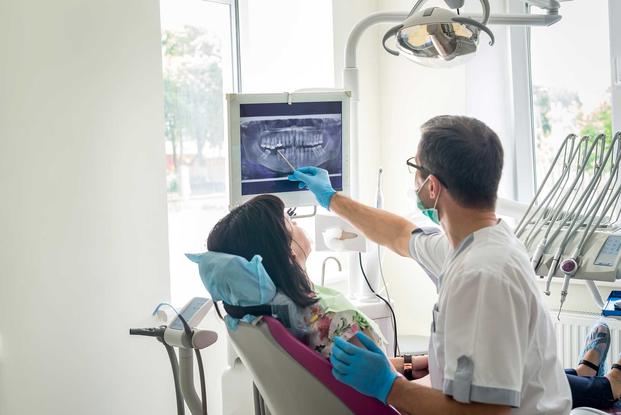
Key Takeaways:
- Dental care plays a crucial role in veterans’ overall health and well-being.
- Preventative measures and regular check-ups can help avoid severe dental issues.
- A variety of dental care options are available to support veterans.
Table of Contents:
- Introduction
- The Importance of Dental Health
- Dental Care Options for Veterans
- Tips for Maintaining Dental Health
- The Link Between Oral and Overall Health
- Conclusion
Introduction
Dental care is a vital component of healthcare that ensures individuals maintain a healthy smile and robust overall health. However, this aspect of health often slips through the cracks, especially for veterans who face unique health challenges post-service. For many veterans, managing health after returning from service can overshadow specific areas like dental care. This article seeks to illuminate the importance of dental care for veterans and provide insights into the available options and practical strategies to maintain excellent oral health. Understanding the connection between dental well-being and general health can empower veterans to take control of their health more comprehensively.
The Importance of Dental Health for Veterans
When we think about health, oral health may not be the first thing that comes to mind, but it’s critical to overall wellness. Dental health affects many facets of life, including nutrition, self-esteem, and social interactions. For veterans, maintaining good oral health can be particularly challenging due to unique stressors experienced during service, which can exacerbate dental problems. Proactive dental care is essential in avoiding complications affecting more than teeth and gums. For veterans, ensuring access to regular dental care can mean the difference between thriving and struggling with health issues that arise from poor oral health.
Accessible dental insurance for veterans is pivotal in facilitating timely and adequate care. Such insurance programs provide necessary coverage for preventive care and treatments that sustain veterans’ oral health. By mitigating the financial burden associated with dental care, veterans are more likely to maintain consistent dental appointments, adhere to treatment plans, and address dental issues promptly before they escalate into more severe conditions. Moreover, having this critical access contributes significantly to overall health equity for veterans, enhancing their quality of life and general well-being.
Dental Care Options for Veterans
Veterans can access various dental care options for their needs and circumstances. Numerous programs that ensure access to affordable and comprehensive dental services equip veterans to handle any dental care requirements they might face post-service. These programs range from federal initiatives to community-based services and can include partnerships with private dental providers to broaden access to care.
One significant barrier to dental care is often the cost, but many options available to veterans offer reduced rates or are subsidized. The goal is to remove financial barriers and provide a supportive framework that veterans can rely on for their dental health needs. Knowledge of existing programs is crucial for veterans to harness these resources effectively and make informed decisions about their oral health management. By successfully navigating these care options, veterans can achieve a sense of autonomy and empowerment in managing their health.
Tips for Maintaining Dental Health
Daily dental hygiene practices are foundational to excellent oral health and should be integral to everyone’s routine, including veterans. While many aspects of healthcare might require professional intervention and complex management, maintaining dental health can often be accomplished with simple, consistent habits:
- Brush your teeth at least twice a day using fluoride toothpaste. This practice helps to prevent cavities, strengthen tooth enamel, and promote healthy gums.
- Remember to floss daily. Flossing reaches areas of the teeth that a toothbrush can’t, removing plaque and food particles to prevent gum disease and cavities.
- Schedule regular dental check-ups. Regular visits allow for early detection of issues and provide professional cleanings that can reach below the gum line, removing tartar and plaque buildup.
Incorporating these straightforward daily practices can significantly improve overall dental health and prevent more serious, costly interventions. As veterans integrate these habits into their lifestyle, they align their everyday actions with long-term health objectives, supporting a more holistic approach to health and wellness.
The Link Between Oral and Overall Health
A growing body of research underscores the significant connection between oral and general health. Previous assumptions that focused primarily on oral health as an isolated aspect of wellness are giving way to an understanding that oral health is deeply interconnected with other bodily systems. Poor oral hygiene has been linked to several systemic health issues, including cardiovascular diseases, diabetes, and respiratory infections. For veterans, maintaining optimal oral health is not just about preventing cavities and gum disease; it’s about preserving overall wellness, reducing healthcare costs, and improving life quality.
Given this critical connection, prioritizing oral health translates into fewer complications, hospitalizations, and healthcare expenditures over time. By maintaining good oral hygiene, veterans improve their physical well-being and ensure their financial and emotional health, fostering an environment that supports their long-term well-being. This perspective ensures that dental care is integrated into broader health objectives, reinforcing the comprehensive care that veterans deserve.
Conclusion
The significance of dental care for veterans extends far beyond maintaining a vibrant smile. It’s a crucial pillar of comprehensive healthcare that directly impacts overall health, vitality, and quality of life. By understanding the importance of dental health and leveraging the available care options, veterans can effectively manage their oral well-being and avoid complex and costly health issues in the future. The proactive measures veterans take toward maintaining dental health support their immediate health needs and pave the way for healthier living as they navigate life beyond their service years.
The empowerment gained through access to dental care options and routine preventive practices ensures veterans enjoy a fulfilling, healthy life. By focusing on oral health as an integral component of overall wellness, we can collectively contribute to the improved well-being of those who have served.
